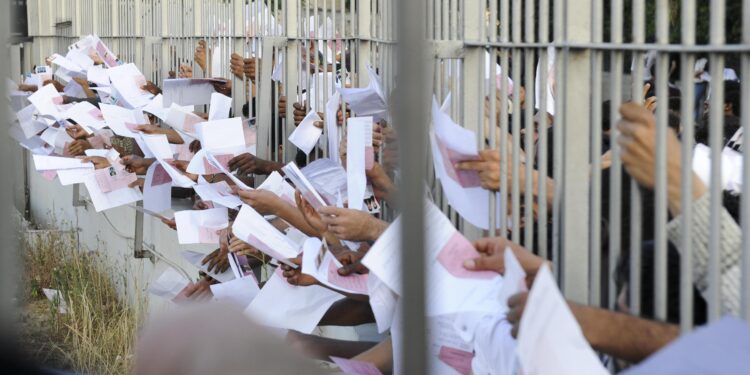In July 2024, Austria recorded a total of 1,582 asylum applications, according to recent data reported by Vienna.at. This figure reflects ongoing migration trends in the region and highlights the challenges faced by Austrian authorities in managing asylum requests. The numbers provide insight into the current state of migration flows into the country amid shifting political and social dynamics across Europe.
Austria Sees Surge in Asylum Applications in July Reflecting Regional Migration Trends
July witnessed a notable increase in asylum requests within Austria, reaching a total of 1,582 applications. This upsurge aligns with broader migration dynamics observed across the Central European region, where conflicts and economic instability continue to push individuals to seek refuge. Vienna, as the primary reception hub, has seen intensified processing efforts face mounting pressure to accommodate the growing number of arrivals.
The majority of applicants hail from countries experiencing ongoing turmoil, with officials emphasizing the importance of swift yet thorough evaluations. Key factors influencing the trend include:
- Escalating geopolitical tensions in Eastern Europe and the Middle East
- Seasonal migration patterns coinciding with improved transit conditions
- Enhanced cooperation among neighboring states facilitating asylum procedures
| Country of Origin | Applications (July) | Percentage Share |
|---|---|---|
| Syria | 420 | 26.5% |
| Afghanistan | 310 | 19.6% |
| Pakistan | 180 | 11.4% |
| Others | 672 | 42.5% |
Vienna’s Response to Increased Asylum Seekers Focuses on Integration and Shelter Expansion
Vienna has taken swift measures to address the growing number of asylum seekers arriving in the city, with 1,582 new applications recorded in July alone. City officials have emphasized a dual approach, prioritizing the rapid expansion of shelter facilities alongside comprehensive integration programs. Temporary housing options have been increased by converting public buildings and partnering with private sector accommodations, ensuring that newcomers have immediate access to safe and hygienic living conditions.
Integration efforts focus on language acquisition, job training, and cultural orientation, reflecting Vienna’s commitment to fostering social cohesion. Key initiatives include:
- Intensive German language courses available within weeks of arrival
- Employment workshops tailored to match local labor market needs
- Community mentorship programs pairing newcomers with long-time residents
| Measure | Current Capacity | Planned Expansion |
|---|---|---|
| Temporary Shelters | 1,200 Beds | +500 Beds by September |
| Language Classes | 15 Weekly Groups | +5 Groups by August |
| Job Training Slots | 300 Participants | +100 Participants by October |
Experts Recommend Policy Adjustments to Streamline Processing and Support Migrant Communities
Policy analysts and migration experts are calling for comprehensive reforms aimed at accelerating the asylum application process while enhancing support structures for newcomers. Key recommendations include expanding staffing at reception centers to reduce waiting times, implementing advanced digital case management systems, and increasing collaboration between government agencies and local NGOs. Experts argue that these changes could significantly improve efficiency, ensuring that applicants receive timely decisions without compromising the quality of assessments.
Additionally, community advocates emphasize the need for strengthened social integration programs. Proposals focus on:
- Language and vocational training tailored for migrants
- Access to mental health services addressing trauma recovery
- Enhancement of housing support to prevent homelessness
- Cultural orientation and community engagement initiatives promoting mutual understanding
| Recommendation | Expected Impact | Priority |
|---|---|---|
| Digital Case Management | Reduce processing time by 30% | High |
| Staffing Expansion | Faster interviews and decision-making | High |
| Vocational Training Programs | Increase employment rates | Medium |
| Mental Health Access | Improve well-being and integration | Medium |
Future Outlook
As Austria continues to navigate the complexities of migration, the report of 1,582 asylum applications in July underscores ongoing challenges and the need for effective policies. Authorities remain vigilant in processing claims while balancing humanitarian responsibilities and security considerations. Further developments will be closely monitored as the country adapts to shifting migration patterns in the months ahead.
















